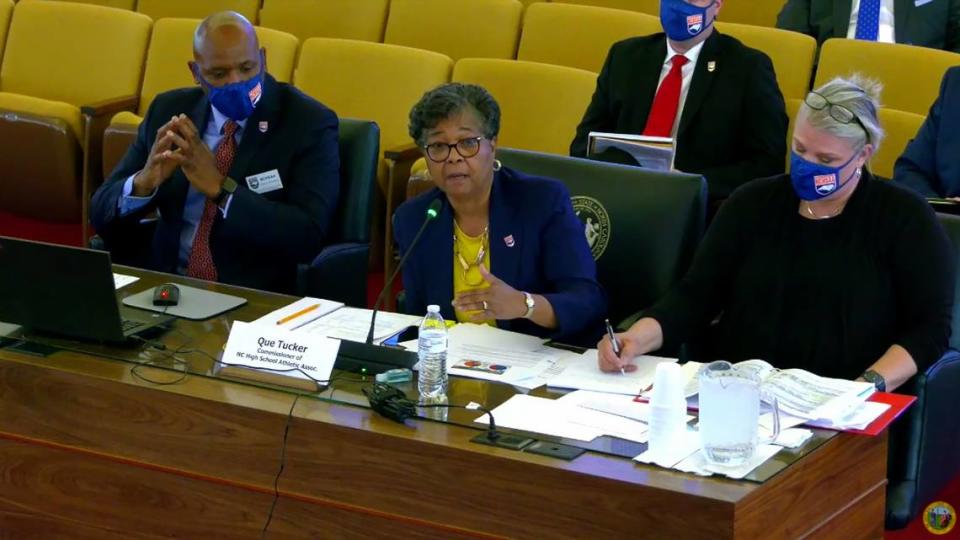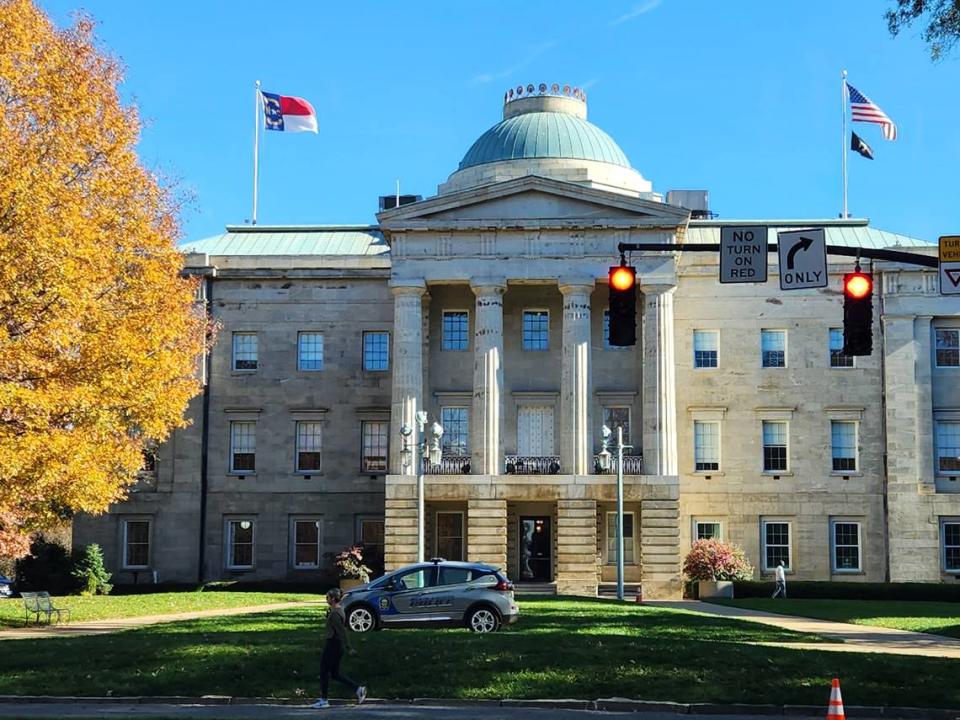With latest NCHSAA decision, NC lawmakers fixed a ‘problem’ that didn’t need fixing
Early Friday morning, North Carolina lawmakers added language to a bill that was about insurance, and fundamentally changed the way high school athletics are run in this state.
But here’s the thing: The people that the lawmakers are saying they’re trying to protect — the school administrators, the coaches, the student-athletes — didn’t want this.
Like, really didn’t.
So why did legislators vote to pass a bill that effectively takes authority away from the N.C. High School Athletic Association and gives it to elected officials?
It’s about politics, and it’s about power.

There are more than 400 schools in the NCHSAA, and on social media, hundreds were expressing support for the association Friday with the hashtag #IStandWithTheNCHSAA. Ditto for statewide organizations like the N.C. Coaches Association and sports specific groups representing basketball and football coaches, as well as one representing the state’s athletic directors. They are all currently part of the governance process, and might not be soon.
Currently, schools elect an NCHSAA Board of Directors and the association staff reports to the board. Virtually no heavy lifting can done without board approval, and the board is made of principals, superintendents and athletic directors.
That’s school people policing school people.
But things are about to change.
The state’s board of education currently designates a non-profit to administer and enforce high school athletic rules — that’s the NCHSAA. Going forward, under the new legislation, the high school league could enter into an agreement with the superintendent of public instruction with additional reporting requirements, audits and oversight. But if an agreement is not reached with an administrative organization, the superintendent would take charge of high school athletics.
The N.C. Department of Public Instruction’s superintendent is Republican Catherine Truitt.
It’s unlikely Truitt’s office is prepared to handle the work of the NCHSAA’s full-time staff. It’s also unlikely we would be here if Sen. Tom McInnis had not been angered with a decision by the NCHSAA to prohibit Anson County High School from making the football playoffs in 2019.
In August of that year, Anson County had six players ejected for fighting during a game with Richmond Senior. NCHSAA rules stated that any team with three of more players ejected from a game would be banned from the postseason. Anson County coach Ralph Jackson told The Observer that he didn’t tell his players about the ruling until after the regular season. The Bearcats won their first conference title in a decade.
Jackson called the incident a life lesson about overcoming adversity.
McInnis, who then represented Anson County, felt the NCHSAA ban was unfair. He told a Raleigh-based website, High School OT, that he contacted the NCHSAA after the decision was made.
“I think it was subjective,” McInnis told the website at the time. “I think they did it just because they could. Anson County is a small, rural school district ... those kids don’t have a voice, but their senator has a voice, and this senator is not going to just stand idly by.”
McInnis has recruited other senators, including Vickie Sawyer, who represents Iredell and Mecklenburg counties, and Todd Johnson, who represents Cabarrus and Union.
In the past few years, lawmakers have gone after the NCHSAA over its use, or lack of use, of its endowment, its transparency and its judgment.
That led to the NCHSAA entering into a “memorandum of understanding” with the State Board of Education, made up of the lieutenant governor, treasurer, and 11 members appointed by Democratic Gov. Roy Cooper.

That memorandum stripped considerable power away from the NCHSAA, allowing the State Board to set rules for eligibility and game play and the ability to override most changes the NCHSAA might make with a simple majority vote. But the four-year agreement, which just started last year, wasn’t enough.
That’s how we got the wee-hour changes Thursday night into Friday morning, with bill alterations made and voted upon while most of North Carolina was sleeping. All along, legislators said they wanted the NCHSAA to do its business in the light, but the decisions lawmakers made about the association were made in the dark.
“This bill increases accountability and transparency for a private organization tasked with administering our children’s athletic experiences,” Sawyer, Johnson and McInnis said in a written statement. “Internal documents obtained from (the NCHSAA) show it has failed to maintain transparency in the decision-making process, sought to remove parents and students from the process and wants to shield their endowments from public scrutiny.”
The NCHSAA isn’t perfect, but tearing down what has been a model agency nationally, and one that has done a good job for student-athletes in our state for more than 100 years, isn’t a good idea.
People who run the schools and the programs know what’s best for their sports and their work lives. We had that, with the way the NCHSAA was run.
Sadly, we don’t have that anymore, and it’s unclear what the future will look like.
▪ NCHSAA commissioner Que Tucker and Sen. Todd Johnson have both agreed to appear on The Observer’s Talking Preps streaming show Tuesday. You can watch the show Tuesday at 8 p.m. on The Observer’s YouTube channel.


